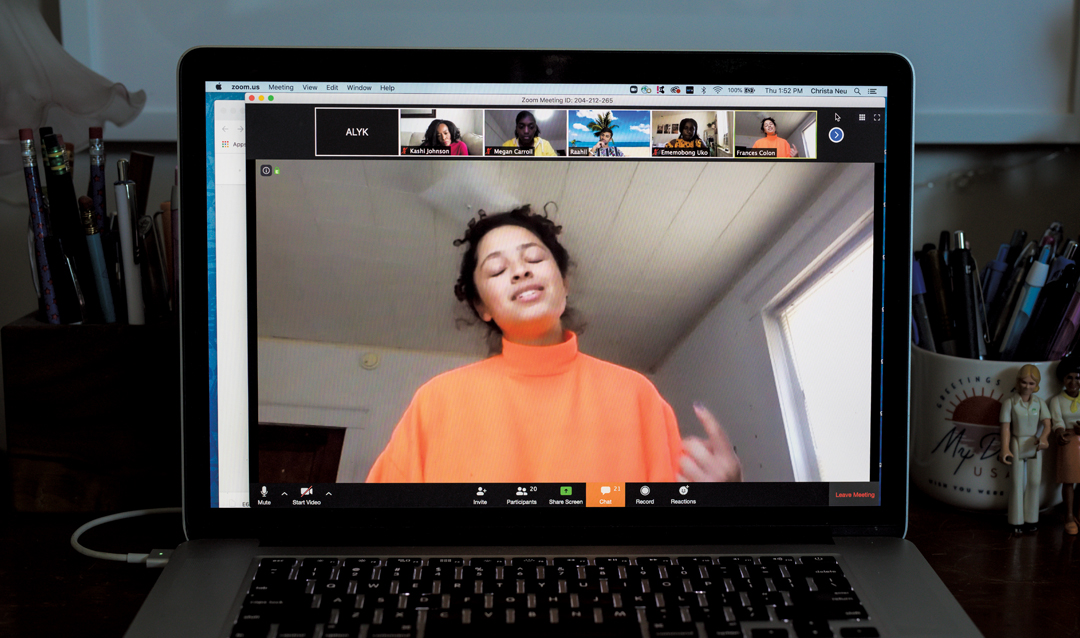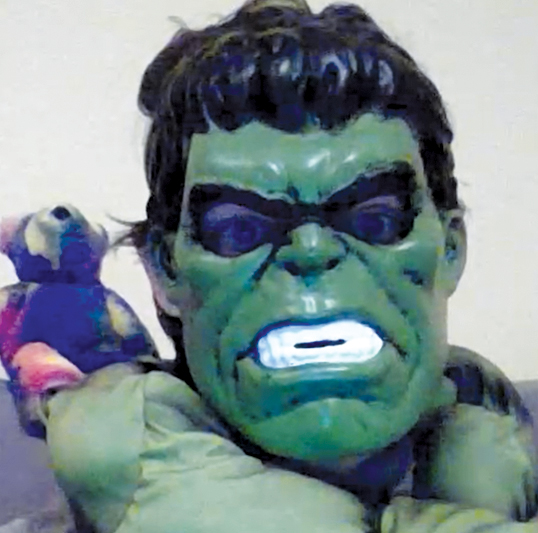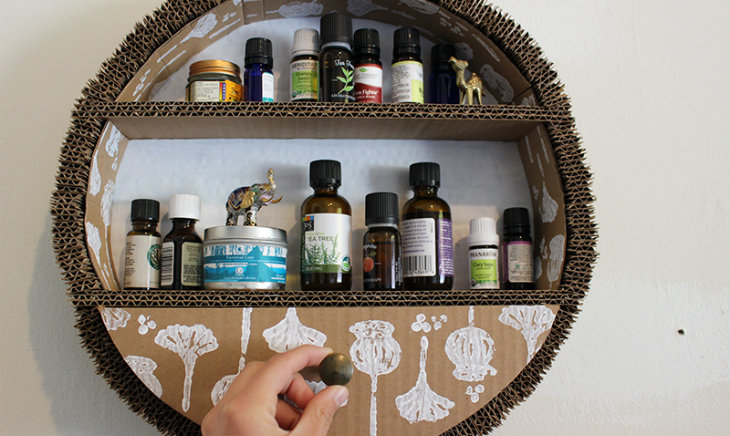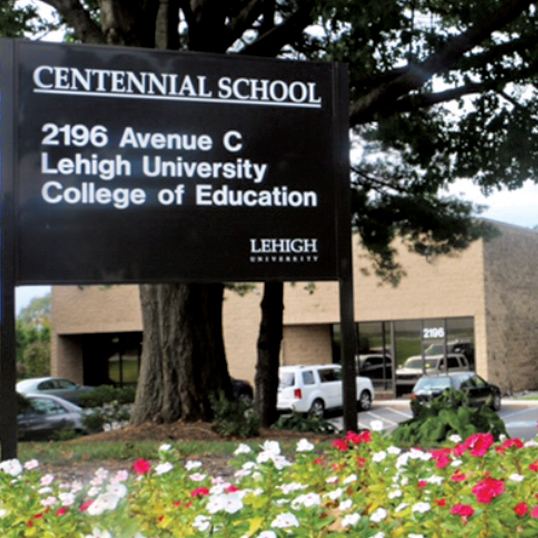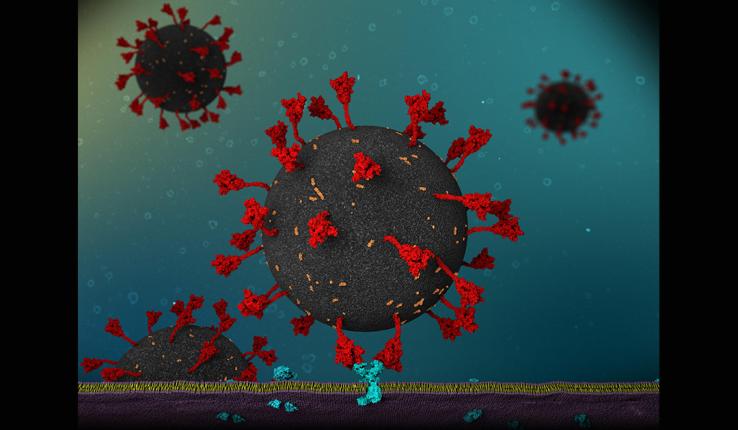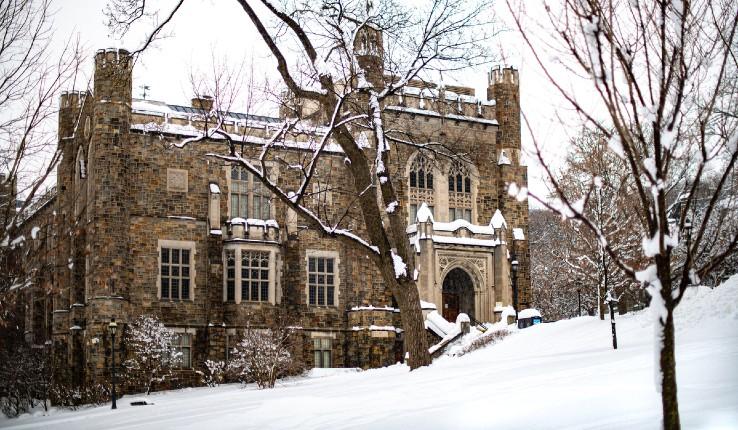Whitley found students in the online course wrote more because he broke up assignments into pieces and checked in with them daily rather than twice a week. “For an English teacher, that's a huge benefit. I think you could say that for any discipline,” he says.
In his first-year writing course, Whitley has students give end-of-semester presentations. This year was no different—although the end results, he says, were even more powerful.
“I thought about scrapping the assignment entirely and coming up with something different,” he says. “But then I did some research, finding ways that they could still do a PowerPoint presentation and embed an audio or a video track. Within that...is a skill that they could take to all kinds of different settings, given how connected the world is and how our Lehigh students are always working in fields that regularly have international components.”
Whitley stresses that faculty are doing all they can to provide the best possible learning experience for their students.
“We really do love our students,” he says. “Faculty who come to Lehigh and who stay at Lehigh, they want to be involved in the lives of their students. ... So we are going to do everything we can to help support our students because we care about them. That's why we're here.”
Emily Weissbourd, assistant professor of English, had never taught an online course before the abrupt transition to remote learning this spring.
“It actually went better than I thought it was going to,” Weissbourd says. “I tried to start with the assumption that this was not going to feel like class as usual, but it could still be really engaging. I could still find ways to make relationships with students and ask them to make relationships with each other.”
Weissbourd kept her students’ internet access and remote capabilities in mind as she transitioned her Shakespearean film class to an online model mid-semester. She divided the class into sections, offering students the option of participating in either an asynchronous model, in which they would write more, or a synchronous model, in which they would participate more via Zoom. Fourteen of 17 students chose the latter.
“I got the sense that a lot of them wanted the opportunity to have some structure to their days, and I think because this class started as very discussion-based, and everyone was really talking to each other, students wanted that model to continue. It became a space to connect at a time when a lot can feel pretty amorphous,” she explains. “We talked about COVID-19 and how much our lives had changed, and brought that perspective to our understanding of plays such as King Lear, which is about, among many other things, the impact of difficult times on ordinary people.”
Weissbourd then broke the group of 14 students into two sections of seven students each, which she believed would yield better and more productive discussions. She also made the discussions shorter, which, she says, took “Zoom fatigue” into account and demanded more focus from students. She posted a Panopto lecture the day before the class met, so students could watch in advance. She’d then give what she called an “in-class exercise:” Students would, for example, annotate a section of text, comment on a classmate’s writing, or embed in the Shakespearean text a link to a current event that reminded them of that particular scene. Students taking the asynchronous class model would submit blog posts in response to the recorded lecture and post more comments.
Weissbourd says she was “trying to find a way to move the online conversation so that it's using the vast resources of the internet and asking students to make the kind of connections that they often make unconsciously in their own social media browsing.” She also had students use their phones to make short video responses to reading assignments. Many students, she says, used the video-sharing social networking service TikTok.
“They were so good. It kind of blew me away,” she says. “They were taking little clips from Much Ado About Nothing and setting them to the Hamilton soundtrack, or using Billie Eilish songs as a soundtrack to underline the way one of the characters is spoofed as the stereotypical ‘bad guy.’ And it was just really cool to get a chance to see that whole different side of them, which you don't see as much in a traditional classroom.”
Weissbourd says that nothing can replace the in-person classroom experience. But she does see some advantages to the changes she’s had to make: “I do think there are particular kinds of connections that can happen in challenging times, times when folks are really focused on creating those connections, and I think that's the silver lining here.


